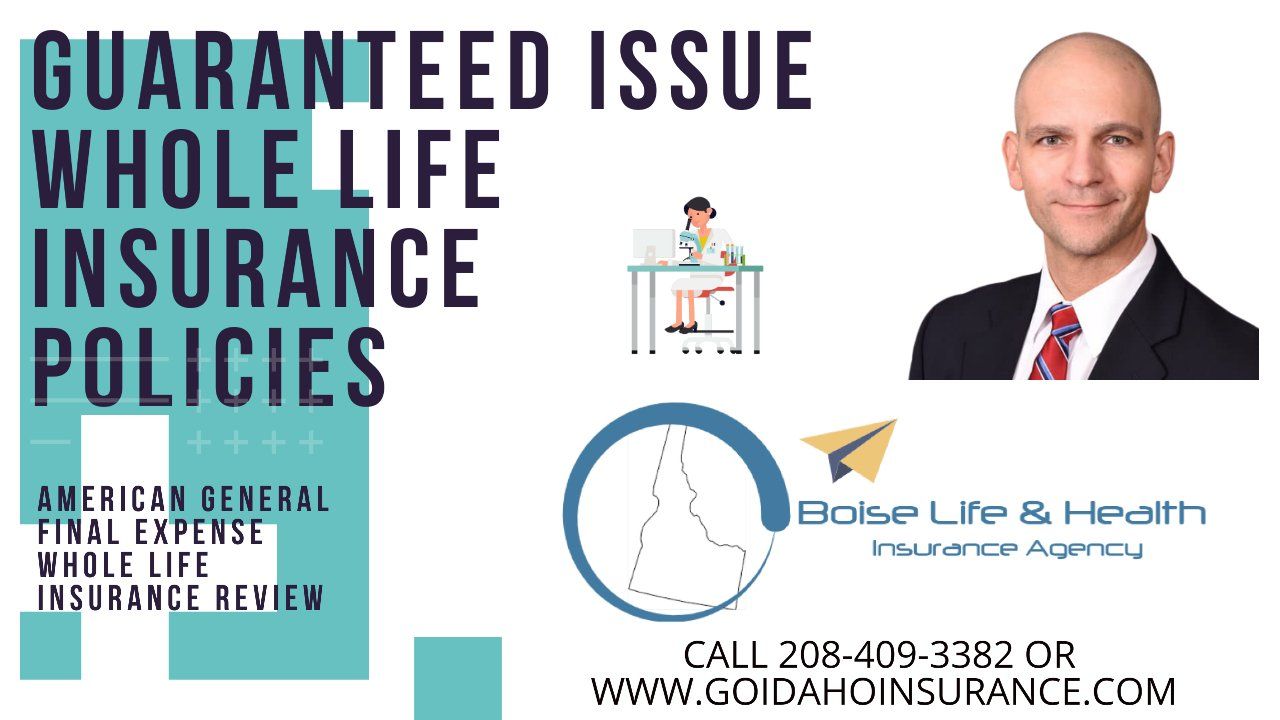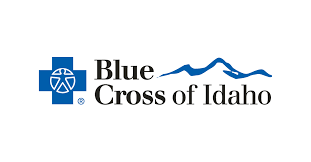What Every Idaho Resident Should Know About HMO Insurance
HMO insurance, also known as Health Maintenance Organization insurance, can be a complex and often misunderstood concept for many individuals in Idaho. Understanding the basics of HMO insurance is essential to making informed decisions about healthcare coverage. This article aims to demystify HMO insurance in Idaho by providing an objective and detailed overview of its key aspects.
One fundamental aspect of HMO insurance is the importance of choosing a Primary Care Physician (PCP). Unlike other types of health insurance plans, where individuals have more flexibility in selecting their healthcare providers, HMOs require members to designate a PCP who serves as their main point of contact for all medical needs. Get more details with
Boise Health & Life Insurance for your inquiries.
The PCP acts as a gatekeeper, coordinating and managing the individual's healthcare within the HMO network. This approach ensures that care is streamlined and comprehensive, but it may also limit individual autonomy in selecting specialists or receiving out-of-network care.
Understanding HMO Insurance: The Basics
Understanding the basics of HMO insurance is essential in order to navigate the complexities of healthcare coverage in Idaho. One important aspect to consider when it comes to HMO insurance is the cost and coverage comparison. HMO plans typically have lower monthly premiums compared to other types of health insurance, making them an attractive option for individuals who are looking for more affordable options. However, it's important to note that HMO plans often require members to choose a primary care physician (PCP) and get referrals from this PCP in order to see specialists or receive certain medical services. This can be seen as a trade-off for the lower monthly premiums, as it may limit your freedom to see any doctor you prefer without going through the referral process.
Another common misconception about HMO insurance is that it offers limited coverage. While it's true that HMO plans have stricter networks and require referrals, they still provide comprehensive coverage for a wide range of medical services. In fact, most preventive care services such as vaccinations, screenings, and wellness visits are fully covered under an HMO plan without requiring any out-of-pocket expenses from the member. Additionally, emergency room visits are typically covered under an HMO plan, although there may be some restrictions on which hospitals or healthcare facilities you can go to during emergencies.
Understanding the basics of HMO insurance is crucial when navigating healthcare coverage in Idaho. By comparing costs and coverage options, individuals can make informed decisions about their healthcare needs while dispelling common misconceptions about HMO insurance along the way.
Choosing a Primary Care Physician (PCP)
Selecting a Primary Care Physician (PCP) is crucial when navigating the intricacies of HMO insurance coverage in Idaho. The PCP serves as the main point of contact for all healthcare needs and acts as a gatekeeper, coordinating and managing an individual's overall care. When finding the right PCP, it is important to consider factors such as their availability, expertise, and compatibility with your specific healthcare needs.
One key aspect to consider when selecting a PCP is their availability. It is essential to choose a physician who has convenient office hours and can accommodate your schedule. This ensures that you can easily access primary care services when needed without unnecessary delays or difficulties. Additionally, it is beneficial to inquire about their accessibility outside of regular office hours, such as through telemedicine or after-hours care options. Finding a PCP who offers extended hours or alternative modes of communication can greatly enhance the convenience and accessibility of your healthcare experience.
Beyond availability, it is also important to assess the expertise and compatibility of potential PCPs with your specific healthcare needs. Each individual has unique health concerns and preferences, so finding a physician who specializes in or has experience in addressing those specific areas can be highly advantageous. Furthermore, establishing compatibility with your PCP fosters trust and open communication, allowing for better collaboration in managing your health. This includes considering factors such as language proficiency if English is not your first language or cultural sensitivity if you have specific cultural beliefs or practices that inform your healthcare decisions.
Choosing a Primary Care Physician (PCP) plays a vital role in effectively navigating HMO insurance coverage in Idaho. Considering factors like availability, expertise, and compatibility with personal healthcare needs is crucial when selecting the right PCP for one's individual circumstances. By ensuring that these aspects align well with personal requirements, individuals can establish a strong foundation for comprehensive primary care management under HMO insurance plans in Idaho, ultimately leading to better health outcomes and satisfaction with their healthcare experience.
Coordinating Care within the HMO Network
Coordinating care within the HMO network involves effectively managing and integrating healthcare services to ensure seamless transitions between providers and optimize patient outcomes. This process is essential to preventing fragmented care, reducing medical errors, and improving the overall quality of care. Care coordination within the HMO network typically starts with a primary care physician (PCP), who acts as a central point of contact for patients. The PCP works closely with specialists, hospitals, and other healthcare providers to create a comprehensive plan tailored to each patient's needs.
To better understand how care coordination works within an HMO network, let's consider a hypothetical example. Imagine a patient named Sarah who has been diagnosed with diabetes. Sarah visits her PCP regularly for check-ups and routine blood work. Her PCP coordinates her care by referring her to an endocrinologist who specializes in treating diabetes. The endocrinologist works closely with Sarah's PCP to develop an individualized treatment plan that includes medication management, dietary recommendations, and regular monitoring of blood sugar levels.
In addition to the collaboration between primary care physicians and specialists, an effective HMO network also relies on clear communication channels between all network providers. This ensures that crucial information regarding a patient's condition, medications, allergies, and previous treatments is accurately shared among healthcare professionals involved in their care. By facilitating this exchange of information through electronic health records systems or secure messaging platforms, potential gaps or overlaps in treatment can be identified and addressed promptly.
Overall, coordinating care within the HMO network is vital for ensuring continuity of care and optimizing patient outcomes. It requires close collaboration between primary care physicians, specialists, hospitals, and other healthcare providers involved in a patient's treatment journey. By implementing effective communication channels and sharing accurate information among these providers, the HMO network can deliver high-quality coordinated care that meets the diverse needs of its members while promoting improved health outcomes for individuals like Sarah living with chronic conditions such as diabetes.
| Provider | Role | Responsibilities |
|---|---|---|
| Primary Care Physician (PCP) | Central point of contract | Conduct regular check-ups, diagnose and treat common conditions, coordinate care with specialists |
| Specialties | Decease-specific expertise | Consult on complex cases, provide specialized treatment |
| Hospital | Inpatient care | Provide necessary medical interventions and procedures |
Table: Roles and Responsibilities within the HMO Network
Maximizing Your HMO Coverage
Maximizing your HMO coverage requires a comprehensive understanding of the network providers, services, and benefits available to ensure optimal utilization of healthcare resources. By utilizing preventive services offered through your HMO plan, you can take proactive steps towards maintaining good health and preventing potential health issues. These preventive services may include routine check-ups, vaccinations, screenings for various medical conditions such as cancer or diabetes, and counseling for lifestyle changes. By taking advantage of these services, you can address any potential health concerns early on and prevent them from escalating into more serious conditions.
In addition to utilizing preventive services, effectively managing prescription drug costs is another important aspect of maximizing your HMO coverage. HMO plans often have a list of preferred pharmacies where you can get your medications at a lower cost. It is essential to familiarize yourself with this list and choose a pharmacy that offers competitive prices for the medications you require.
Additionally, discussing generic alternatives with your healthcare provider can help reduce costs without compromising the quality or effectiveness of the prescribed medication. Being proactive in researching different pharmacies and discussing cost-saving options with your healthcare team can significantly contribute to maximizing the value of your HMO coverage while managing prescription drug expenses.
To summarize:
- Utilize preventive services such as routine check-ups, vaccinations, screenings, and counseling.
- Take advantage of preferred pharmacies within your HMO network to manage prescription drug costs.
- Research different pharmacy options and discuss generic alternatives with your healthcare provider.
- Be proactive in finding ways to maximize the value of your HMO coverage while effectively managing expenses related to prescription medications.
Benefits and Limitations of HMO Insurance in Idaho
Understanding the scope of coverage and limitations of HMO insurance in Idaho is akin to navigating a labyrinthine maze, requiring careful examination of the fine print and a discerning eye for potential gaps in healthcare access.
- Lower Cost: When compared to other kinds of health insurance policies, HMO plans frequently have lower premiums. They may therefore be a desirable alternative for people and families looking for reasonably priced healthcare coverage. Lower monthly payments can ease people's financial burdens and increase access to insurance.
- Primary Care Physician (PCP) Coordination: HMO plans often demand that members choose a primary care physician (PCP), who acts as the primary point of contact for all healthcare requirements. The PCP serves as a gatekeeper and manages the coordination of all medical services, including specialist referrals. This unified coordination can support preventive services, enhance continuity of care, and simplify healthcare administration.
- Broad Preventive Care Coverage: HMO plans frequently offer full coverage for preventive care such yearly physicals, immunizations, screenings, and preventive health advice. The ease with which people can actively control their health and delay the emergence of serious illnesses is made possible by the fact that many preventative procedures are covered for little to no cost.
- Reduced Administrative Burdens: Members typically encounter less onerous administrative requirements when they have HMO insurance. There is less need to submit claims or deal with complicated billing procedures because the plan places a strong emphasis on coordinated treatment within a network. Both members and healthcare professionals can benefit from this simplicity in terms of time and effort.
- Network of Providers: HMO plans have a network of healthcare providers, which includes hospitals, physicians, specialists, and other medical personnel. HMO networks are carefully designed in Idaho to guarantee wide coverage and easy access to high-quality medical care. The majority of the time, members incur lesser out-of-pocket expenses when they stick with the network.
Limitations of HMO Insurance in Idaho:
- Limited Provider Options: One of the major drawbacks of HMO insurance is that members must frequently seek medical services from inside the provider network. This implies that you might need to switch providers or get a referral to see your chosen doctor or specialist if they're not in the network, which can be problematic for some people.
- Coverage for Out-of-Network Care: Except in extreme circumstances, HMO plans frequently do not cover care received outside of their network. Without proper authorization, you run the risk of being liable for the full cost of the healthcare services you get if you seek treatment from a provider outside the network.
- Referral Requirement: HMO plans typically demand that members receive a referral from their primary care physician (PCP) before seeing a specialist. This may lead to extra steps and possible delays when obtaining specialized care. Despite ensuring coordinated care, the referral mechanism may restrict direct access to experts without the PCP's involvement.
- Geographical Restrictions: HMO plans could include restrictions on where you can live, especially if you travel a lot or don't live in the plan's service area. It's crucial to confirm that the network coverage matches your healthcare requirements and geographic situation before enrolling in an HMO plan.
- Limited Flexibility: HMOs allow less flexibility in selecting healthcare providers and obtaining out-of-network care than other insurance plans. This may be a drawback for people who want access to a wider variety of healthcare providers or who have particular medical needs that call for specialist care outside the network.
While HMO insurance offers advantages such as comprehensive preventive care coverage and affordability, it also has limitations such as restricted networks and limited coverage outside the network. Understanding these benefits and drawbacks is crucial when considering enrolling in an HMO plan in Idaho, so that individuals can make informed decisions about their healthcare coverage.
See More HMO Insurance Options with Chris Antrim Insurance
In conclusion, understanding HMO insurance is essential for residents of Idaho who are seeking comprehensive healthcare coverage. By grasping the basics of how an HMO operates and the importance of selecting a primary care physician, individuals can navigate the system more effectively. Coordinating care within the network ensures that patients receive necessary treatments and referrals in a timely manner. Moreover, by being aware of both the benefits and limitations of HMO insurance, individuals can maximize their coverage while also acknowledging any potential restrictions.
To further enhance our understanding of HMO insurance in Idaho, it is crucial to investigate the theory that suggests this type of insurance may limit access to certain specialists or hospitals. By delving into this matter, we can gain a deeper insight into whether there might be any truth behind such claims. This investigation will provide valuable information for individuals considering HMO insurance and allow them to make informed decisions about their healthcare options.
In conclusion, HMO insurance in Idaho offers a range of benefits, such as affordability and preventive care services. However, it may come with certain limitations regarding the choice of providers or specialists. By carefully examining these aspects and conducting a thorough investigation into potential restrictions, individuals can make well-informed choices about their healthcare coverage. Ultimately, demystifying HMO insurance empowers individuals to take control over their healthcare needs while ensuring they receive quality care within an efficient network.












